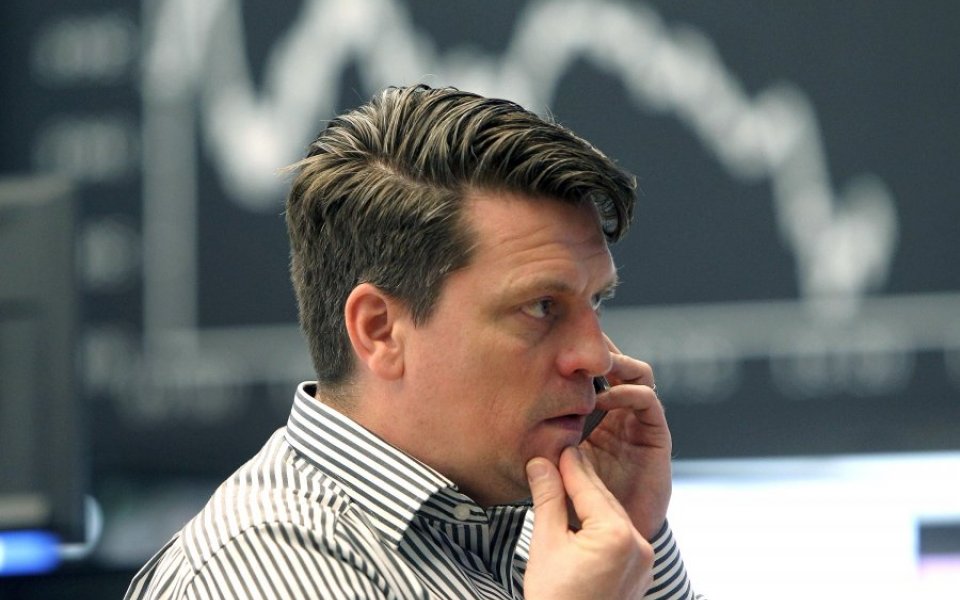SocGen leads European banks lower at the close as rout resumes on Deutsche, Barclays, HSBC, Lloyds and RBS share prices and Credit Suisse hits 27 year lows

Well that didn’t last long. Europe’s bank shares closed down this evening, led by French bank Société Générale after it announced earlier it may struggle to meet its profitability targets this year.
The bank, whose share price slumped over 13 per cent in early trading but managed to scale back loses to end the day down just over 12 per cent, blamed “headwinds” that include record-low interest rates, volatile financial markets, weakness in emerging markets, and increased regulatory pressure.
Net income at the bank rose to €656m (£515m) from €549m a year earlier, missing analysts’ expectations of €944m.
Profit at SocGen’s global banking and investor services unit, which includes trading, private banking and custody, slipped to €275m in the fourth quarter, down from €422m a year earlier.
Read more: Why are bank stocks tumbling? It's the liquidity, stupid
Chief executive Frederic Oudea has sought to reassure investors, saying strength in the first half of the year offset recent market volatility and market panic, which has led to sharp sell offs, are overdone.
SocGen Swiss rival Credit Suisse has highlighted the extent of the sell off today, with it's share price slipping to a 27-year low.
Credit Suisse's CEO Tidjane Thiam left investors wanting when he unveiled restructuring plans for the bank.
“It’s not a great time to be a bank,” Thiam said in a presentation to investors Wednesday. “So I’m using the current challenging environment to accelerate the transformation that I’m driving.”
Credit Suisse's share price was down 8.4 per cent at the close, at 12.31 Swiss francs the lowest since October 1989.
Compounding bank's woes the Sweden's central bank surprised markets this morning by cutting its benchmark interest rate to fresh lows.
The Riksbank has added to concerns bank chiefs are getting desperate to cut sinking inflation,
The Riksbank's interest rate is now at -0.5 per cent. When central bank interest rates are low for a long time it makes it more difficult for commercial banks to make money, having to lend with lower rates of return.
Fear has spread to other banks in the sector with Italy’s UniCredit finishing seven per cent lower, Deutsche Bank falling six per cent, and emerging market focused Standard Chartered down 5.5 per cent, adding further troughs to a week that has seen extreme swings in banks’ share prices.
BNP Paribas closed down six per cent.
Deutsche Bank's chief executive and German politicians have sought to calm markets but their attempts seem to have failed as Deutsche’s five year senior credit default swap (CDS) – a financial contract that protects the buyer if a bond defaults – has jumped 34 basis points today to 316bps.
Meanwhile the bank’s 5-year junior CDS is also up today by 80bps today to 541bps, adding to the 354bps so it's climbed this year alone.
These rising in price mean the cost of insuring against a default by Deutsche has risen considerably.
In the UK Barclays was the biggest loser, down over seven per cent, while HSBC, Lloyds Banking Group and Royal Bank of Scotland all ended around four per cent lower.
The Stoxx Europe 600 Index ended the day down 3.5 per cent.
Read more: US Presidential Election 2016: Can the stock market predict who is going to be the next President?
Equity around Europe has seen a renewed sell off, with shares sliding for the eighth time in nine days, nearing their lowest levels since September 2013.
Results coming in under expectations for the likes of Rio Tinto and Zurich Insurance didn’t help matters.